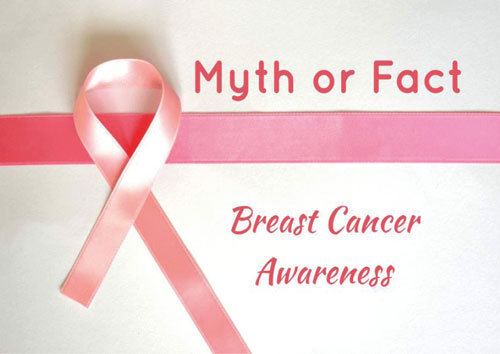OCTOBER is National Breast Cancer Awareness Month. With this in mind, the latest edition of Medical Myths focuses on some of the most common misunderstandings associated with breast cancer.
In our Medical Myths series, we approach medical misinformation head on. Using expert insight and peer reviewed research to wrestle fact from fiction, MNT brings clarity to the myth riddled world of health journalism.
According to the World Health Organization (WHO)Trusted Source, in 2020, 685,000 people died from breast cancer, and 2.3 million received a diagnosis. It reported:
“As of the end of 2020, there were 7.8 million women alive who were diagnosed with breast cancer in the past 5 years, making it the world’s most prevalent cancer.”
Its prevalence might help explain why there is a wide range of myths attached to it. Here, we will tackle 15 of the most common misunderstandings.
To help us reach the truth, we enlisted the help of three experts:
Dr. Michael Zeidman: an assistant professor of breast surgery at Icahn School of Medicine at Mount Sinai in New York City.
Dr. Crystal Fancher: a surgical breast oncologist at the Margie Petersen Breast Center at Providence Saint John’s Health Center and assistant professor of surgery at the Saint John’s Cancer Institute in Santa Monica, CA.
Dr. Richard Reitherman, Ph.D.: the medical director of breast imaging at MemorialCare Breast Center at Orange Coast Medical Center in Fountain Valley, CA.
“Injury to the breast cannot cause breast cancer,” explained Dr. Zeidman, “however, it can cause changes in the breast that may mimic breast cancer on imaging.”
“This process is called ‘fat necrosis,” he continued, “and it can look like an irregular mass with jagged edges on a mammogram, much like the appearance of a new breast cancer. The best way to distinguish cancer from fat necrosis is with a needle biopsy.”
Although underwire bras do not increase breast cancer risk, Dr. Zeidman always recommends bras without a wire. He explains:
“The wire can irritate the skin under the breast, which can lead to skin breakdown. This breakdown may allow bacteria to enter the breast causing infection, [an] abscess, [or both].”










